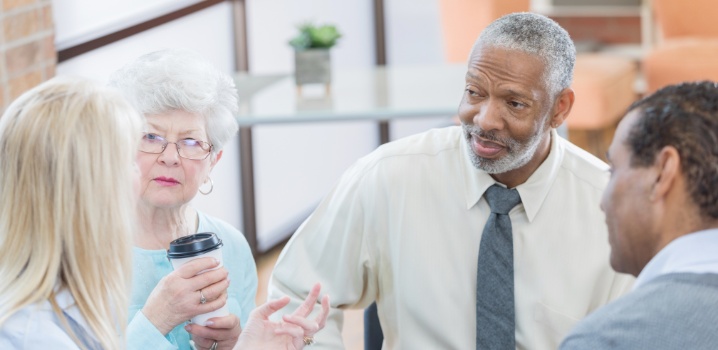Home » Addiction Treatment Therapies » Special Populations Programs
Special Populations Programs

Our special population programs are geared towards specific groups of people who are particularly vulnerable to drug use or are made vulnerable to using drugs. Our special population programs offers specialized treatment methods geared toward each of the vulnerable populations taking in to account what will help them best in their recovery journey.
Special Populations Programs: Pregnant Women
Addiction during pregnancy happens because of many factors, including stress, life problems, and lifestyle. Addiction treatment for pregnant women is available and can be lifesaving. Most women who suffer from drug or alcohol addiction are likely to have underlying issues of low self-confidence or feelings of guilt and shame.
Substance use can harm the health of the mother as well as the unborn child. A mother who is drinking or using while pregnant may suffer from various health issues, including:
- Early labor
- Sexually transmitted diseases
- Anxiety
- Depression
- High blood pressure
The baby might also experience adverse health effects such as:
- HIV
- Congenital disabilities
- Low birth weight
- Learning disorders
- Stunted growth
Proper medical supervision can help to prevent these effects. Pregnant women face unique barriers to accessing addiction treatment, such as the need for long-term care, childcare and scheduling issues, legal restrictions, insurance concerns, and the lack of reliable resources to care for themselves as well as their children.
Special Population Programs: Military Personnel
Active duty military and veterans go through extensive levels of stress that make them particularly vulnerable to drug addiction. Also, they often struggle with substance abuse and mental health issues, such as depression, anxiety, and post-traumatic stress disorder (PTSD).
According to the U.S. Department of Veterans Affairs, veterans with PTSD tend to binge drink, and their heavy drinking may be in response to past trauma and combating complex memories. Treatment programs for veterans must understand their past experiences and incorporate them into treatment. Furthermore, according to the Substance Abuse and Mental Health Services Administration, about one in three veterans seeking drug or alcohol treatment also has PTSD.
Special Population Programs: Women
Women are sometimes underserved while attending inpatient drug rehab and outpatient drug rehab. We provide comprehensive case management services to assist women in accessing resources, including childcare assistance, food and grocery benefits, and legal aid. While women make up half of the population, we offer the special populations program to women who have suffered from trauma they may not be comfortable talking about in a mixed setting.
Clinically, our therapists work with patients to address trauma, relapse prevention, and emotions such as guilt, shame, and fear related to active addiction and pregnancy. Additionally, we work with patients to develop life and vocational skills to prepare for parenting in sobriety. Empowerment is the key to success. At Lighthouse Recovery Institute, we aim to help women achieve their plans for a lifetime of peace and joy.

Special Population Programs: LGBTQ+
According to the CDC, substance use among LGBTQ individuals may be a reaction to homophobia, discrimination, or violence they have experienced. Compared to the regular population, they have higher rates of substance use disorders.
Making sure substance abuse treatment is inclusive, respectful, and insightful of their struggles is critical for long-term recovery. We’re proud to be an addiction center that doesn’t discriminate by anyone’s sexual orientation. Our drug treatment options at Lighthouse Recovery Institute can be targeted and adjusted to understand your unique struggles and offer behavioral health treatment that fosters a respectful and healing environment.
Special Population Programs: Adolescents and Children
According to the National Library of Medicine, the effects of drug treatment on adolescents and children have not been studied extensively. Many adolescents and children start using drugs from peer pressure. Children of drug-addicted parents are also particularly at risk. While we don’t treat children at Lighthouse Recovery Institute, we are happy to offer parents advice and guidance on finding the right treatment centers to help their children.
Addressing Medical Needs in Addiction Treatment
Spirituality, emotional connection, and mental health are vital aspects of addiction treatment. But all too often, failing to address patients’ medical and physical needs leads to unnecessary stress, pain, and medical complications that can put sobriety at risk.
Chronic conditions are a part of life for many recovering addicts and alcoholics. Part of comprehensive addiction treatment is formulating a plan for managing conditions without the use of narcotics. Drug use and alcoholism can result in contracting infectious diseases, such as hepatitis, and conditions like liver damage or disease. Treating these ailments is vital to long-term health.
How we Address Medical Needs at Lighthouse Recovery
At Lighthouse Recovery Institute, we offer ongoing medical care for patients. In addition to access to a staff psychiatrist and physician’s assistant, patients can access case management services to coordinate referrals, specialist appointments, and additional necessary medical care. Patients also have access to a nutritionist, personal trainers, chiropractors, and massage therapists for the duration of their stay with us.
By our philosophy of providing a comprehensive continuum of care, patients have access to medical and holistic treatment and the support to coordinate transportation to outside services while enrolled at our Florida drug rehab center. Our commitment is to treat the whole individual to provide the best framework for sustaining long-term mental, emotional, and physical recovery.
Co-Occurring Conditions & Special Population Programs
In the United States, one of the largest special populations in treatment facilities is those with co-morbid conditions. Estimates say that about one in four adults with a mental illness also struggles with a substance abuse disorder. Still, only 12% of the four million American adults who suffered from a dual diagnosis condition received treatment for both conditions.
For example, some common co-occurring disorders include:
- Alcoholism and depression
- Cocaine abuse and anorexia
- Heroin addiction and PTSD
- Prescription drug dependence and anxiety disorder
They often struggle with a mental illness and a substance use disorder simultaneously. Before, many facilities only treated co-occurring conditions separately. But, when someone is struggling with addiction and mental health disorders, the best course of treatment is to address them together.
Does Insurance Cover Special Population Programs?
Most insurance plans will cover some or all the costs of addiction treatment programs. Individual therapy is part of both inpatient and outpatient rehab programs, both covered by insurance companies. However, to learn more about the specifics of your insurance policy plan, we recommend that you contact our admissions office to verify your insurance coverage.




